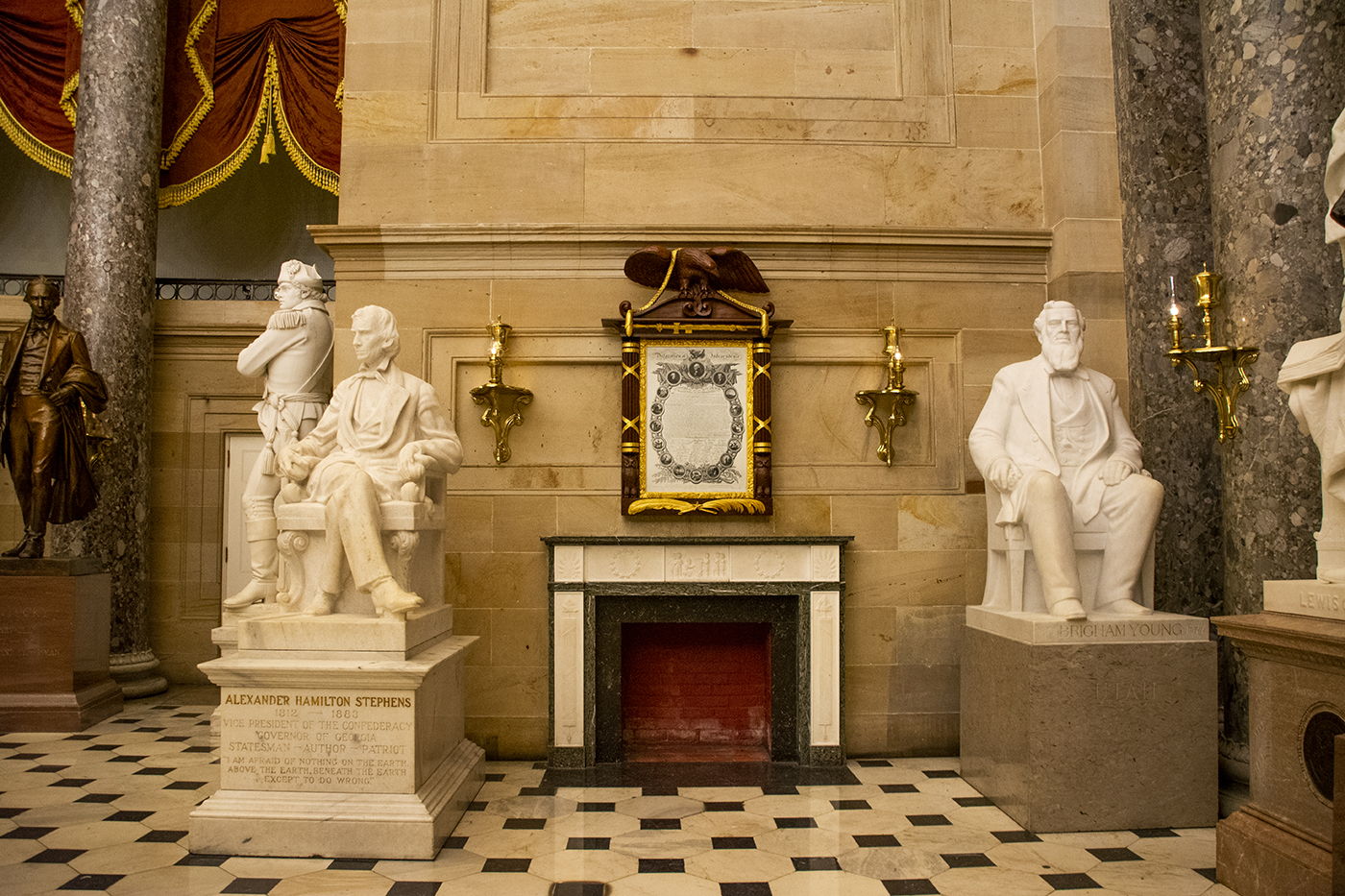UCLA faculty consider causes, consequences of Trump’s second impeachment

The U.S. House of Representatives impeached former President Donald Trump for the second time Jan. 13. UCLA faculty said Trump’s impeachment demonstrates the country’s need to address divisions and to formalize constitutional norms. (Sakshi Joglekar/Daily Bruin staff)

By Annika Sial
Jan. 20, 2021 12:24 p.m.
The second impeachment of former President Donald Trump shows the United States needs to formalize constitutional norms, establish checks on executive power and address divisions in the country, UCLA faculty said.
The U.S. House of Representatives impeached Trump on Jan. 13 for high crimes and misdemeanors in response to a violent siege of the U.S. Capitol in early January. Trump is the first U.S. president to have been impeached twice.
Some faculty said Trump’s second impeachment was warranted because of Trump’s speeches encouraging violence at the Capitol prior to the riot. Joel Aberbach, a professor emeritus of political science and public policy, said the former president’s endorsement of violence was entirely unprecedented.
“(There was a) crass, overt use of violence clearly egged on by the sitting president of the United States,” said Aberbach.
[Related link: UCLA students share their reactions to riots, violence at US Capitol]
The need for a second impeachment inquiry highlighted the Senate’s failure to properly address the concerns about Trump’s ability to govern in his first impeachment, when he was impeached for the abuse of power, said Blake Emerson, an assistant law professor.
“One of the lessons is that when a president says to you they aren’t taking their job seriously and they’re willing to put their personal interests above the interests of the country, you have to stop them, and the Senate failed to do that the last time,” Emerson said.
The Trump presidency illuminated the Constitution’s dependence upon informal norms, said Mark Peterson, a public policy, political science and law professor. Peterson added that revisions should reinforce existing checks and balances between the branches of government, such as strengthening the congressional subpoena.
Trump’s second impeachment also demonstrates tensions about the changing economy and interracial relations, which were primary causes of the violence at the Capitol, Aberbach said.
“(People) fear they’re not going to have a significant role in society in terms of their occupations and all the rest of it,” Aberbach said. “I think there’s a lot of work to be done there to educate people in ways that provide them with opportunities.”
The Senate is expected to begin proceedings for Trump’s impeachment trial in the upcoming days, but some members of Congress, such as Sen. Tom Cotton from Arkansas, have claimed the Senate does not have the authority to hold a trial after Trump is no longer president.
However, Clyde Spillenger, a law professor, said that based on historical precedent, the Senate does have the authority.
Secretary of War William Belknap was impeached in the 1870s. Although Belknap resigned before the Senate could vote, the Senate still voted on his conviction after he left office, Spillenger said.
Emerson said impeaching Trump in the House and convicting him in the Senate, even if it is after he leaves office, would demonstrate that inciting the riot was an assault on the U.S. constitutional system and democracy.
Convicting Trump would also allow the Senate to hold a second vote to prevent him from holding public office in the future, Peterson said.
However, there is a possibility that impeaching Trump twice will make impeachment a common partisan tactic, Spillenger added.
“Given the bitter partisanship, the ideological or at least the rhetorical divide in this country, there’s a risk that impeachment could be taken up as just a standard political tool for a party that’s in power in Congress to try to cut off at the knees a president of the other party,” Spillenger said.
Aberbach said he hopes that with the legislative and executive branches unified in the upcoming term, the riots may have provided an opportunity to address social and economic concerns in the country, which contributed to the culture that sparked the riots.
“There’s a lot of anger out there,” he added. “We have to find a way … to damp down some of that anger and give people a sense that they really are important.”


